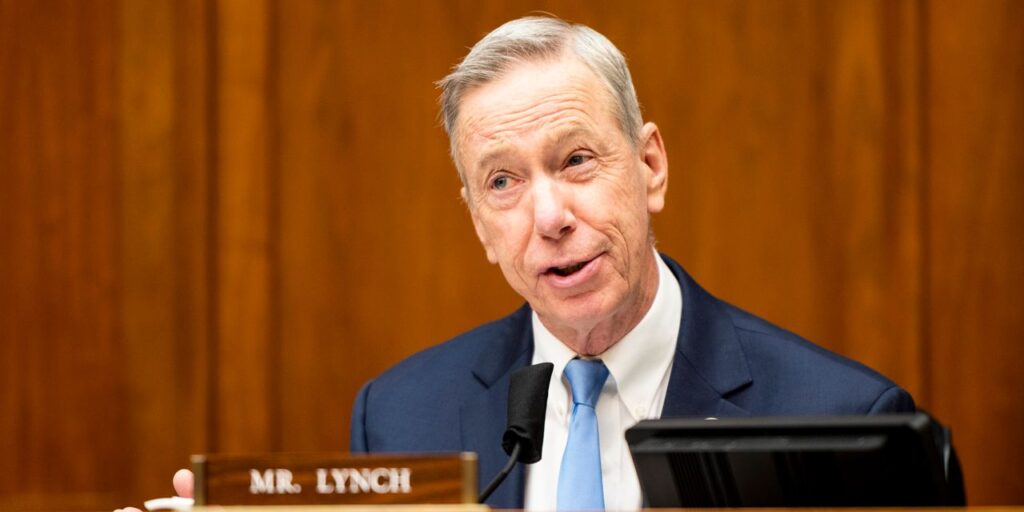The crypto community is reeling after the U.S. Securities and Exchange Commission filed two major lawsuits this week against Binance Holdings Ltd. and Coinbase Global Inc.
COIN,
that could threaten the business models of two of the world’s largest digital asset exchanges.
The lawsuits confirmed fears that the SEC is taking a maximally combative stance against a crypto industry it alleges has been flouting securities laws for years to boost their profitability.
That’s why the industry is now focusing its attention on crypto regulatory legislation under consideration in Congress, with some major players in the industry hopeful that new laws will defang the SEC in its disputes with the crypto industry.
Ryan Selkis, the founder and CEO of Messari, a crypto analytics firm tweeted Thursday , “If you saw what I see in DC, you’d see a path to total victory for crypto in the U.S.”
Read more: Gensler accused of being in ‘complete contempt of Congress’ with crackdown on Coinbase
Most crypto boosters are placing their hopes in a draft discussion bill recently unveiled by Republican Reps. Patrick McHenry of North Carolina and Glenn Thompson of Pennsylvania, Chairmen of the Financial Services and Agriculture Committees, respectively.
The bill would give greater power to the Commodity Futures and Trading Commission to regulate sufficiently decentralized digital assets, while leaving room for the SEC to regulate digital-asset securities under a new legal definition of the term.
It would also create a regulatory and disclosure framework for crypto exchanges and token issuers that supporters argue would bolster oversight of the industry while enabling it to thrive.
These lawmakers are in a good position as heads of the relevant committees to get their bill to the floor of the House, and with Republican control of the chamber, have it passed and sent to the Senate.
See also: Senators call for criminal investigation into Binance for lying to Congress
The bill’s chances in a Democratic Senate face tall odds, however, given the lack of interest shown for a new crypto regulatory framework by the Democratic Chairman of the Senate Banking Committee, Sherrod Brown of Ohio, according to Owen Tedford, analyst at Beacon Policy Advisors.
One strategy for overwhelming Brown’s indifference is rallying as much Democratic support for the measure in the House.
“Passing a bipartisan bill in the House would be a massive success and put the spotlight on the Senate to act,” Tedford wrote in a recent note to clients.
There are a handful of Democrats on the House Financial Services Committee that have indicated support for a new regulatory framework, including Rep. Ritchie Torres of New York and Rep. Wiley Nickel, a freshman Democrat from North Carolina.
But more senior Democrats don’t appear willing to play ball.
“We do not need to create an entirely new and special framework for crypto,” Rep. Maxine Waters of California, the top Democrat on the House Financial Services Committee said in an April hearing. “Crypto firms, like other tech companies before them, must recognize they’re not exceptional. They need to comply with the laws of the land.”
Rep. Stephen Lynch of Massachusetts, the ranking member on the House subcommittee on digital assets told MarketWatch in an interview that the McHenry-Thompson bill appears to be “initiated if not sponsored by the crypto industry.”
Empowering the CFTC as the main regulator of crypto “is exactly in line with what the industry has requested,” he said.
“We have a financial system that is the envy of the world because of the protections we provide to investors and I think this bill would undermine that in a serious way.”
Rep. Bill Foster of Illinois, a Democratic chair of the Congressional Blockchain Caucus, told MarketWatch in an interview that he is in no rush to pass legislation updating regulation for crypto markets until Congress considers new laws that would help establish a system of verifiable digital identity for all interested Americans.
Such a system could resemble a license plate on an automobile. A driver doesn’t know who owns the car next to her, but she knows they have a license plate number that can be used to track them down if they drive you off the road, he said.
“The question of commodities versus securities is a second-order distinction,” Foster said. “We need regulators to be able to see the true identity of market participants, not just in a single market but across markets.”
Supporters of the bill still have time to amend the legislation to maximize the bipartisan support, starting with a hearing next Tuesday before the House Financial Services Committee that will focus on the McHenry-Thompson legislation.
“Strategically, the SEC really needs to keep House Dems away from the negotiating table on McHenry-Thompson,” wrote Justin Slaughter, policy director at the crypto company Paradigm, on Twitter Tuesday. “Once Dems starts suggesting there are specific changes to the legislation they’d need to support it, the bill’s odds of passage go up.”
Read the full article here











